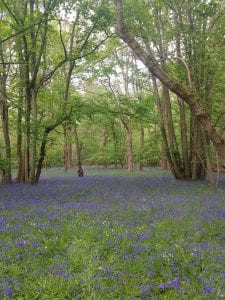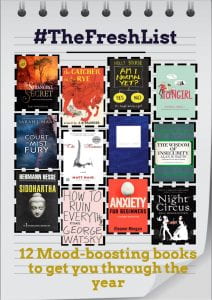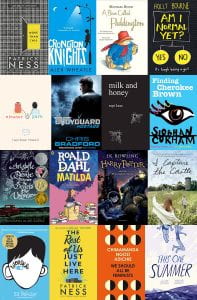This week is Mental Health Awareness Week, 10th – 16th May 2021 on the theme of Nature. The Mental Health Foundation is encouraging all of us to connect with nature (Further information about why they have chosen this theme here)
What could be more perfect than getting lost in a good book in the midst of a bluebell wood listening to birdsong?

The goals for the week are described as:
- Firstly, to inspire more people to connect with nature in new ways, noticing the impact that this connection can have for their mental health.
- Secondly, to convince decision makers at all levels that access to and quality of nature is a mental health and social justice issue as well as an environmental one.
Here are their Top Tips for Connecting with Nature
We have a growing collection of books in the library on the theme of nature – including diaries, memoirs, what to spot in your garden, rewilding projects and including Helen Macdonald and Robert Macfarlane’s books. Have a browse of the library Nature and Wildlife padlet to explore the books available on this theme.
Many people have talked about how since the arrival of COVID and the lockdown periods they have come to appreciate their immediate surroundings and the plants and wildlife in their gardens and find it calming – a tonic for their wellbeing. I include myself in this number, having become fascinated by the birds in my garden and enjoying local walks in search of bluebells and ducklings at this time of year. In the library we have been developing a collection of books on wildlife and nature writing. It ranges from memoirs which explore training a goshawk as a way of overcoming a sudden bereavement – ‘H is for Hawk’ by Helen Macdonald to ‘The Wild Remedy: How Nature Mends Us – A Diary’ by Emma Mitchell including beautiful nature drawings, photos and honest reflections on the author’s struggles with depression. We also have books on bird identification and ‘Bird Therapy’ by Joe Harkness and ‘The Garden Jungle: or Gardening to Save the Planet’ by Dave Goulson. Described thus: The Garden Jungle is about the wildlife that lives right under our noses, in our gardens and parks, between the gaps in the pavement, and in the soil beneath our feet.
We are so lucky to live and work in a beautiful environment with deer in the woods and at this time of year ducklings and goslings on the lake. Have a look at the Welly Wildlife website for more about the habitats and species around us and follow @WellyWildlife on Twitter.
We also have library padlets on the themes of Mental Health and Wellbeing and Feelgood Fiction. The books are available to borrow from the library and may also be available as e-books.
Mood-boosting books
Here is a list of feelgood books put together by young people: Mood-boosting Books – A 2018 list chosen by young people
You can read about this in a blog post from the Reading Agency – Moodboosting books for young people – blog post
 Exeter University students have also put together a collection of books to recommend to new students called ‘The Freshlist’ – 12 Mood-boosting books to get you through the year. I also loved ‘The Humans’ by Matt Haig.
Exeter University students have also put together a collection of books to recommend to new students called ‘The Freshlist’ – 12 Mood-boosting books to get you through the year. I also loved ‘The Humans’ by Matt Haig.
Shelf-help – Books on Prescription
As well as escapist fiction or gritty reality stories or weepy books which can make us feel surprisingly better at times, we have a collection of factual books to help with mental health issues. We stock the books on the Reading Agency ‘Reading Well’ list for Young People which is described as:
Reading Well Books on Prescription helps you to understand and manage your health and wellbeing using self-help reading. The books are chosen by health experts and people living with the conditions covered. People can be recommended a title by a health professional, or they can visit their local library and take a book out for free.
The books are on a range of issues including ADHD, Anxiety, worry and panic, Autism and Asperger syndrome, body image and eating disorders, bullying, confidence and self-esteem, depression, mood swings, OCD, self-harm and stress.
Here is the Reading Well list for young children
This is the list of Books on Prescription – Reading Well for adults
Book suggestions on reading for wellbeing
- The reading cure : how books restored my appetite by Laura Freeman
- The novel cure: An A-Z of Literary Remedies by Ella Berthoud and Susan Elderkin This is a fascinating book to dip into with suggested books for any number of maladies from long-windedness (the cure being Cormac McCarthy as The Road is ‘an exemplary model of short-windedness’) to stubbed toe, low self-esteem and being different.

